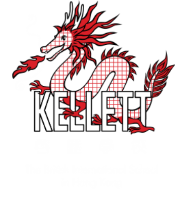Our curriculum prepares our students for GCSE and IGCSE examinations, which are taken in Year 11. We are proud to be one of few schools in Hong Kong offering the prestigious A-level programme in Years 12 and 13, which are recognised worldwide as excellent pre-university qualifications.
Increasing status as a well-established and reputable all-through school with strong results.
- Good Schools' Guide 2024
The Kellett Senior Education
Kellett Senior & Sixth Form Curriculum Map & Options
Senior & Sixth Form Subjects
Senior Student Portfolios
Every Senior student at Kellett responsibility to maintain a digital Student Portfolio during their time as part of our community. The Student Portfolio is a platform for students to curate their proudest achievements both in lessons and as part of the wider Kellett community.
Students are encouraged to reflect regularly on their learning and upload evidence to each of the four sectors of the Kellett Learner Profile. The Student Portfolio plays a valuable role in ‘one to one’ conversations between a student and their Form Tutor. Additionally, the Student Portfolios are used during Student Learning Conferences allowing students to engage in evidence-based discussions about their work with their parents or guardians.
